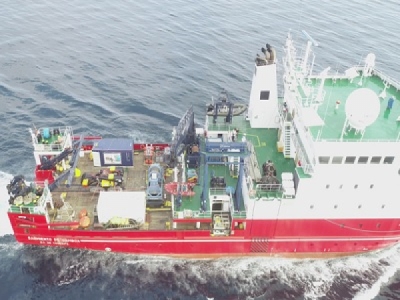
Posted on December 13, 2018
During a two-week trial cruise in the Gulf of Malaga on board the Spanish research vessel Sarmiento de Gamboa, technical performance and environmental effects of the mining crawler Apollo II built by Royal IHC have been successfully tested.
As NIOZ expedition leader Henko de Stigter says: ‘The field trial provides us with valuable quantitative data on disturbance of the seabed and size and extent of sediment plumes generated by the mining process. The goal is to minimise the impact of this process on the environment and such science-based data are much needed as input to the ongoing international debate about deep sea mining. Within the Blue Nodules project, our data will help the engineers to work on improving the environmental performance of the crawler’. The engineers of Royal IHC were very satisfied with the performance of the mining vehicle during its first test drive in a fully marine environment.
The trial cruise was carried out in the framework of the Blue Nodules project, funded by the EU under the Horizon 2020 program. In Blue Nodules, 14 industry and academic partners from 9 countries in Europe work together to develop a mining system for harvesting polymetallic nodules from the deep-sea floor with minimum environmental impact.
Source: bluenodules





